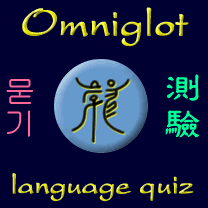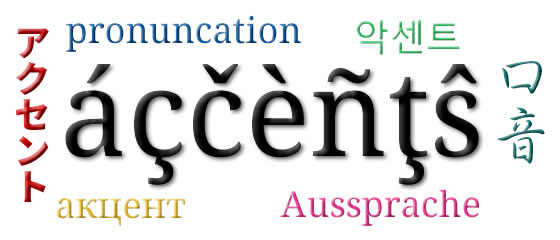
Here’s a recording in a mystery language.
Do you know or can you guess the language?
I don’t know if this language is always spoken this fast, but this is one of the few recordings I can find in it.

Here’s a recording in a mystery language.
Do you know or can you guess the language?
I don’t know if this language is always spoken this fast, but this is one of the few recordings I can find in it.
Apparently the game pictured below is known as babyfoot in French. Which is kind of cute.
According to the Belgian magazine, Le Soir illustré, the French inventor Lucien Rosengart (1881–1976) came up with the game of table football in the 1930s when he was looking for things to keep his grandchildren entertained during the cold winter months. He called the game “baby foot”.
The name babyfoot, which is also written baby-foot is used in France, Canada and Switzerland. It is also known as football sur table or football de table in Canada, as kicker in Belgium, foot-foot in Switzerland, and football de table in France.
I would call it table football, which is the usual name for this game in the UK, and was patented by Harold Searles Thornton in 1921.
It was brought to the the USA in the 1950s by Lawrence Patterson, and it is called foosball [ˈfuːzbɔːl], which comes from the German name tischfußball (table football).
In German it is known as Tischfußball (table football), Tischkicker (table kicker) or Kicker.
What do you call it?
Do you know any interesting names for this game in other languages?
Sources: https://en.wikipedia.org/wiki/Table_football
https://fr.wikipedia.org/wiki/Baby-foot
https://de.wikipedia.org/wiki/TischfußFball
If you speak a foreign language, and know the grammar well and have a large vocabulary, but people find it difficult to understand you because you have a strong foreign accent, can we say that you speak it well?

This is something my friends and I were discussing last night. We recognise that there’s nothing wrong with having a non-native accent when speaking a foreign language, and that few people manage to sound like native speakers of languages they have learnt as adults. This is because you tend to carry over elements of pronunciation from your native language, or from other languages you know.
However, if communication is difficult due to your accent, then it might be a idea to try to modify it so that others can understand you more easily. This may difficult, but is worth the effort.
What are you thoughts on this?
If you have a crush on someone or you are infutated with them, in Dutch you might say that je bent verkikkerd op iemand, which could be translated literally as “you are befrogged of someone”.
The word verkikkerd means ‘in love with (someone)’ or to ‘love (someone) very much’ [source]. It comes from kikker [ˈkɪkər] (frog, toad, cleat), from kikken (to croak, sound like a frog; utter, mention), which is onomatopoeic [source].
Some other frog-related words and expressions in Dutch include:
Source: Wiktionary
In English the word frog means:
It comes from the Middle English frogge [ˈfrɔɡ(ə)] (frog, toad, wretch, mushroom), the Old English frocga [ˈfroɡ.ɡɑ] (frog), and the Proto-Germanic *fruþgô (frog), from *fruþ (frog) [source].
Do you know any interesting frog-related expresssions?
A Japanese word I learnt recently that made me smile is 微笑む (ほほえむ) [ho.ho.e.mɯ], which means to smile 😃.
The character 微 (kasu / bi) means delicate, minuteness, insignificance, and 笑 (wara / e / jō) means laugh, laughter, smile or sneer. So 微笑 could be translated literally as a “delicate laugh”.
Some related words include:
The existence of 微笑み返す suggests to me that answering smiles with smiles is a common thing in Japan. That makes me smile. Are there words in other languages that mean something similar?
笑 (wara) [ɰaɺa] on it’s own is apparently used as internet slang to mean LOL (laugh out loud) or haha.
Some related words include:
Source: jisho.org
If you haven’t seen someone for a while, you might greet them by saying “long time no see”. Have you ever wondered where that phrase comes from?
According to NPR, if was first used in print in 1900 in a book by William F. Drannan called Thirty-One Years on the Plains and in the Mountains, Or, the Last Voice from the Plains An Authentic Record of a Life Time of Hunting, Trapping, Scouting and Indian Fighting in the Far West – a nice snappy title. In the book the phrase is used in the following context:
“I knew he had recognized me. When we rode up to him he said: ‘Good morning. Long time no see you,’ and at the same time presented the gun with breech foremost.”
Another idea is that it is comes from Chinese phrase 好久不见 [好久不見] (hǎojǐu bújiàn), which means “quite a while, not see/meet”.
The character 久 (jǐu) means ‘(long) time’, and appears in Japanese equivalents of the phrase: 久しぶり (hisashiburi) and お久しぶりですね (o hisashiburi desu ne). In this context, the ぶり (buri) part, which can also be written 振り, means after (a period of time), again or for the first time in (a period of time) [source].
久 always appears in expressions like:
There’s a nice equivalent of this phrase in Russian: Сколько лет, сколько зим! (Skol’ko let, skol’ko zim!), which means literally “How many years, how many winters!”.
How to say ‘long time, no see’, or something similar, in many languages: https://omniglot.com/language/phrases/longtimenosee.htm.